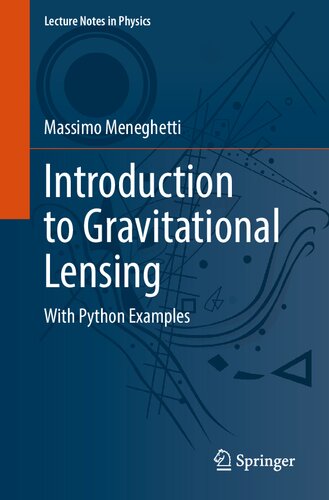

Most ebook files are in PDF format, so you can easily read them using various software such as Foxit Reader or directly on the Google Chrome browser.
Some ebook files are released by publishers in other formats such as .awz, .mobi, .epub, .fb2, etc. You may need to install specific software to read these formats on mobile/PC, such as Calibre.
Please read the tutorial at this link: https://ebookbell.com/faq
We offer FREE conversion to the popular formats you request; however, this may take some time. Therefore, right after payment, please email us, and we will try to provide the service as quickly as possible.
For some exceptional file formats or broken links (if any), please refrain from opening any disputes. Instead, email us first, and we will try to assist within a maximum of 6 hours.
EbookBell Team

4.3
38 reviewsThis book introduces the phenomenology of gravitational lensing in an accessible manner and provides a thorough discussion of the related astrophysical applications. It is intended for advanced undergraduates and graduate students who want to start working in this rapidly evolving field. This includes also senior researchers who are interested in ongoing or future surveys and missions such as DES, Euclid, WFIRST, LSST.
The reader is guided through many fascinating topics related to gravitational lensing like the structure of our galaxy, the searching for exoplanets, the investigation of dark matter in galaxies and galaxy clusters, and several aspects of cosmology, including dark energy and the cosmic microwave background.
The author, who has gained valuable experience as academic teacher, guides the readers towards the comprehension of the theory of gravitational lensing and related observational techniques by using simple codes written in python. This approach, beyond facilitating the understanding of gravitational lensing, is preparatory for learning the python programming language which is gaining large popularity both in academia and in the private sector.